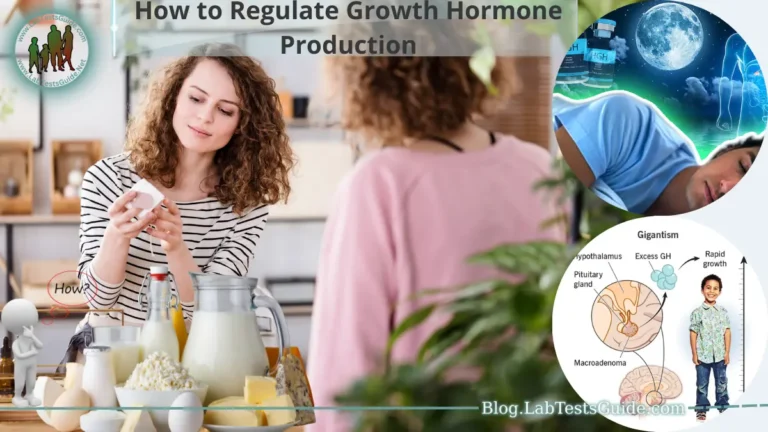Testosterone is a vital hormone that plays a crucial role in men’s health and well-being. It is primarily known for its role in supporting sexual function and reproductive health, but it also impacts various other aspects of men’s physical and mental well-being. Testosterone levels can fluctuate throughout a man’s life, and imbalances or deficiencies can lead to a range of symptoms and health concerns. Understanding the importance of testosterone and the factors that affect its production is essential for men who wish to optimize their overall health and vitality.

Factors such as age, lifestyle choices, and underlying medical conditions can influence testosterone levels. As men age, it is natural for testosterone production to gradually decline. However, certain lifestyle factors such as poor diet, sedentary behavior, chronic stress, and lack of sleep can contribute to accelerated testosterone decline. Additionally, certain medical conditions, such as obesity or hormonal disorders, and medications can also impact testosterone levels. By addressing these factors and implementing strategies to promote healthy testosterone production, men can potentially enhance their well-being, improve vitality, and minimize the risk of associated health complications. In the following sections, we will delve into various ways to promote healthy testosterone production in men, ranging from lifestyle changes and dietary modifications to medical interventions and age-specific considerations.
What is Testosterone?
Here are some key points to help understand testosterone.
- Sexual Development: Testosterone is responsible for the development of male reproductive organs during fetal development. It also promotes the growth of facial and body hair, deepens the voice during puberty, and contributes to muscle and bone strength.
- Libido and Sexual Function: Testosterone is vital for maintaining a healthy sex drive (libido) and sexual function. It influences sexual desire, arousal, and the production of sperm.
- Muscle Mass and Strength: Testosterone plays a crucial role in the growth and maintenance of muscle mass and strength. It enhances protein synthesis, which is essential for muscle development and repair.
- Bone Health: Testosterone contributes to bone density and strength, helping to prevent conditions like osteoporosis. It aids in the production of bone tissue and helps maintain its mineral content.
- Mood and Well-being: Testosterone influences mood, energy levels, and overall well-being. Optimal testosterone levels are associated with a positive mood, increased motivation, and improved cognitive function.
- Red Blood Cell Production: Testosterone stimulates the production of red blood cells, which carry oxygen throughout the body. Sufficient red blood cell production is vital for overall health and physical performance.
- Metabolism and Fat Distribution: Testosterone affects metabolism, helping to regulate fat distribution and prevent the accumulation of excessive body fat. Low testosterone levels have been associated with increased body fat and a higher risk of obesity.
How to Boost Testosterone Levels Naturally:
- Maintain a Healthy Weight: Excess body weight, particularly abdominal fat, can contribute to lower testosterone levels. Engage in regular physical activity and follow a balanced diet to achieve and maintain a healthy weight.
- Exercise Regularly: Incorporate both resistance training and cardiovascular exercises into your routine. Resistance training, such as weightlifting, can stimulate testosterone production. Aim for at least 150 minutes of moderate-intensity aerobic activity or 75 minutes of vigorous-intensity aerobic activity per week, along with strength-training exercises twice a week.
- Get Sufficient Sleep: Inadequate sleep can negatively impact testosterone levels. Strive for 7-8 hours of quality sleep per night to support hormone production and overall well-being.
- Manage Stress: Chronic stress can lead to elevated levels of cortisol, which can inhibit testosterone production. Practice stress management techniques such as meditation, deep breathing exercises, or engaging in activities you enjoy to reduce stress levels.
- Maintain a Healthy Diet: Include foods that are known to support testosterone production. These include foods rich in zinc (e.g., oysters, lean meats, legumes), vitamin D (e.g., fatty fish, fortified dairy products, sunlight exposure), and healthy fats (e.g., avocados, nuts, olive oil).
- Limit Alcohol Consumption: Excessive alcohol intake can suppress testosterone production. If you choose to drink alcohol, do so in moderation.
- Minimize Sugar and Processed Foods: A diet high in sugar and processed foods can lead to weight gain and insulin resistance, which can negatively impact testosterone levels. Opt for whole foods, fruits, vegetables, and lean proteins instead.
- Ensure Sufficient Vitamin and Mineral Intake: Consider supplementation if you have deficiencies in key nutrients like zinc, vitamin D, or magnesium. However, consult with a healthcare professional before starting any supplements.
- Avoid Long-Term Calorie Restriction: Severe or prolonged calorie restriction can lower testosterone levels. Instead, focus on creating a balanced and sustainable eating plan that provides adequate nutrition.
- Avoid or Minimize Exposure to Endocrine Disruptors: Certain chemicals found in plastics, pesticides, and personal care products can disrupt hormone balance. Minimize exposure to such substances by using BPA-free containers, choosing organic produce, and opting for natural personal care products.
Understanding Testosterone:
- Definition and Function: Testosterone is a hormone primarily produced in the testes (and to a lesser extent in the adrenal glands) in men. It plays a vital role in the development and maintenance of male sexual characteristics and reproductive function. Testosterone is an androgen hormone that influences various aspects of men’s physical and mental well-being.
- Sexual Development: During fetal development, testosterone is responsible for the development of male reproductive organs. During puberty, it triggers the growth of facial and body hair, deepens the voice, and stimulates the growth and maturation of the penis and testes. It also contributes to the production of sperm.
- Muscle Mass and Strength: Testosterone plays a crucial role in the development and maintenance of muscle mass and strength. It enhances protein synthesis, which is essential for muscle growth and repair. Higher testosterone levels can lead to increased muscle mass and improved athletic performance.
- Bone Health: Testosterone is important for maintaining optimal bone density and strength. It stimulates the production of bone tissue and helps regulate bone remodeling. Adequate testosterone levels are associated with reduced risk of osteoporosis and fractures.
- Libido and Sexual Function: Testosterone is closely linked to sexual desire (libido) and sexual function in men. It influences arousal, erectile function, and the production of semen. Low testosterone levels can contribute to decreased libido and sexual dysfunction.
- Mood and Cognitive Function: Testosterone plays a role in mood regulation and cognitive function. Optimal testosterone levels are associated with a positive mood, increased motivation, and improved cognitive abilities such as memory and spatial skills. Low testosterone levels have been linked to mood swings, irritability, and poor concentration.
- Metabolism and Body Composition: Testosterone influences metabolism and body composition. It helps regulate fat distribution and can contribute to maintaining a leaner body mass. Low testosterone levels may be associated with increased body fat and a higher risk of obesity and metabolic disorders.
- Red Blood Cell Production: Testosterone stimulates the production of red blood cells in the bone marrow. Red blood cells are responsible for carrying oxygen throughout the body. Adequate testosterone levels are important for maintaining healthy red blood cell counts and optimal oxygen delivery to tissues.
Signs and Symptoms of Low Testosterone:
- Decreased Libido: One of the primary symptoms of low testosterone is a significant decline in sexual desire or reduced interest in sexual activities. Men with low testosterone may experience a decreased sex drive and find it more difficult to become aroused.
- Erectile Dysfunction: Low testosterone can contribute to difficulties achieving or maintaining erections. It may result in weaker or less firm erections and can affect overall sexual performance.
- Fatigue and Reduced Energy Levels: Men with low testosterone often report persistent fatigue, lack of energy, and a general feeling of low motivation. They may struggle to perform daily activities and may feel tired even after adequate rest.
- Decreased Muscle Mass and Strength: Testosterone plays a crucial role in maintaining muscle mass and strength. When testosterone levels are low, men may experience a gradual loss of muscle mass, decreased muscle tone, and reduced physical strength.
- Increased Body Fat: Low testosterone levels can lead to an increase in body fat, particularly around the waist area. Men with low testosterone may notice a change in body composition, with more fat accumulation and less muscle definition.
- Mood Changes: Testosterone influences mood, and low levels can contribute to changes in emotional well-being. Men may experience increased irritability, mood swings, feelings of sadness or depression, and a general decline in overall mood.
- Decreased Bone Density: Testosterone plays a crucial role in maintaining bone health. Low testosterone levels can lead to decreased bone density, making men more susceptible to osteoporosis and an increased risk of fractures.
- Memory and Cognitive Difficulties: Some men with low testosterone may experience difficulties with memory, concentration, and cognitive function. They may have trouble with mental clarity, reduced focus, and decreased overall cognitive performance.
- Decreased Motivation and Drive: Low testosterone can affect motivation levels and result in a reduced drive to accomplish goals or engage in activities that were once enjoyable. Men may experience a lack of enthusiasm and decreased ambition.
- Disturbed Sleep Patterns: Low testosterone levels can disrupt sleep patterns, leading to difficulties falling asleep, staying asleep, or experiencing poor sleep quality. This can contribute to further fatigue and exacerbate other symptoms.
Lifestyle Changes for Optimal Testosterone:
- Healthy Diet: Maintain a balanced and nutritious diet to support optimal testosterone levels. Include foods rich in essential nutrients like zinc, vitamin D, magnesium, and healthy fats. Incorporate lean proteins, fruits, vegetables, whole grains, and healthy sources of fats such as avocados, nuts, and olive oil.
- Regular Exercise: Engage in regular physical activity, including both resistance training and cardiovascular exercises. Resistance training, such as weightlifting, can help stimulate testosterone production. Aim for at least 150 minutes of moderate-intensity aerobic activity or 75 minutes of vigorous-intensity aerobic activity per week, along with strength-training exercises two to three times per week.
- Weight Management: Maintain a healthy weight as excess body fat can contribute to lower testosterone levels. If overweight, adopting a calorie-controlled diet and regular exercise can help in achieving and maintaining a healthy weight, thereby supporting optimal testosterone levels.
- Stress Management: Chronic stress can negatively impact testosterone production. Practice stress management techniques such as meditation, deep breathing exercises, yoga, or engaging in activities you enjoy to reduce stress levels and promote hormonal balance.
- Quality Sleep: Prioritize getting sufficient and restful sleep each night. Aim for 7-8 hours of uninterrupted sleep to support healthy testosterone production. Create a sleep-friendly environment, establish a bedtime routine, and avoid electronic devices before bed to improve sleep quality.
- Limit Alcohol Consumption: Excessive alcohol consumption can interfere with testosterone production. It’s advisable to limit alcohol intake and drink in moderation or avoid it altogether to support optimal testosterone levels.
- Quit Smoking: Smoking has been associated with lower testosterone levels. If you smoke, consider quitting to improve overall health and potentially boost testosterone production.
- Reduce Stressful Chemical Exposures: Minimize exposure to endocrine-disrupting chemicals found in certain plastics, pesticides, and household products. Opt for BPA-free containers, choose organic produce to reduce exposure to pesticides, and use natural personal care and cleaning products to minimize the impact on hormone balance.
- Adequate Vitamin D: Ensure sufficient vitamin D levels, as vitamin D deficiency has been linked to low testosterone levels. Spend time outdoors in the sun, consume vitamin D-rich foods (fatty fish, fortified dairy products), or consider vitamin D supplements after consulting with a healthcare professional.
- Regular Sexual Activity: Regular sexual activity and stimulation can help maintain healthy testosterone levels. Sexual arousal and activity can stimulate testosterone production, contributing to hormonal balance.
Healthy Habits for Testosterone Enhancement:
- Maintain a Healthy Weight: Excess body weight, particularly abdominal fat, can contribute to lower testosterone levels. Focus on achieving and maintaining a healthy weight through a combination of balanced eating, regular exercise, and portion control.
- Consume Testosterone-Boosting Foods: Incorporate foods into your diet that are known to support testosterone production. These include foods rich in zinc (oysters, lean meats, legumes), vitamin D (fatty fish, fortified dairy products, sunlight exposure), magnesium (spinach, almonds, dark chocolate), and healthy fats (avocados, nuts, olive oil).
- Get Regular Exercise: Engage in regular physical activity as it can help enhance testosterone levels. Both resistance training (weightlifting, bodyweight exercises) and cardiovascular exercises (running, cycling) are beneficial. Aim for at least 150 minutes of moderate-intensity aerobic activity or 75 minutes of vigorous-intensity aerobic activity per week, along with strength-training exercises two to three times per week.
- Prioritize Quality Sleep: Aim for 7-8 hours of uninterrupted sleep per night. Poor sleep can negatively impact testosterone production. Create a sleep-friendly environment, establish a consistent bedtime routine, and limit exposure to electronic devices before bed to improve sleep quality.
- Manage Stress: Chronic stress can disrupt hormonal balance, including testosterone production. Practice stress management techniques such as meditation, deep breathing exercises, yoga, or engaging in hobbies and activities that help you relax and unwind.
- Limit Alcohol Consumption: Excessive alcohol consumption can lower testosterone levels. If you choose to drink alcohol, do so in moderation or consider avoiding it altogether to support optimal hormone levels.
- Stay Hydrated: Drink plenty of water throughout the day to support overall health and hormone production. Dehydration can affect hormone balance, including testosterone.
- Reduce Exposure to Endocrine Disruptors: Certain chemicals found in plastics, pesticides, and personal care products can disrupt hormone balance. Minimize exposure to such substances by using BPA-free containers, choosing organic produce, and opting for natural personal care products.
- Maintain a Healthy Sex Life: Regular sexual activity and stimulation can help maintain healthy testosterone levels. Engaging in sexual activity can stimulate testosterone production and contribute to hormonal balance.
Medical Interventions and Treatment Options:
- Testosterone Replacement Therapy (TRT): TRT involves the administration of exogenous testosterone to supplement or replace the body’s natural testosterone production. It can be delivered through various methods, including injections, patches, gels, and pellets. TRT is typically prescribed for men with clinically low testosterone levels and significant symptoms.
- Clomiphene Citrate: Clomiphene citrate is a medication that stimulates the release of hormones that signal the testes to produce more testosterone. It is often prescribed as an alternative to testosterone replacement therapy, particularly for men who want to maintain fertility or avoid potential side effects associated with exogenous testosterone administration.
- HCG Therapy: Human chorionic gonadotropin (HCG) is a hormone that mimics luteinizing hormone (LH), which stimulates testosterone production in the testes. HCG therapy can be used to stimulate the natural production of testosterone in the body, especially in cases of secondary hypogonadism.
- Medications to Address Underlying Conditions: In some cases, low testosterone levels may be a result of underlying medical conditions such as pituitary disorders or testicular damage. Treating these underlying conditions may help restore testosterone levels.
- Lifestyle Modifications and Optimization: Alongside medical interventions, implementing healthy lifestyle changes can also support testosterone production. These include maintaining a healthy weight, engaging in regular exercise, managing stress levels, getting sufficient sleep, and ensuring adequate nutrition.
Testosterone-Boosting Tips for Specific Age Groups:
Younger Men (20s and 30s):
- Maintain a healthy lifestyle with regular exercise and a balanced diet to support optimal testosterone production.
- Engage in strength training exercises to stimulate testosterone release and promote muscle growth.
- Minimize stress levels through relaxation techniques and adequate sleep.
- Limit alcohol consumption as excessive drinking can interfere with testosterone production.
- Avoid using anabolic steroids or other performance-enhancing substances, as they can suppress natural testosterone production.
Middle-Aged Men (40s and 50s):
- Continue to prioritize regular exercise, including both resistance training and cardiovascular activities, to support testosterone production.
- Maintain a healthy weight to prevent excess fat accumulation, which can contribute to lower testosterone levels.
- Pay attention to stress management techniques, as chronic stress can affect hormone balance.
- Ensure adequate sleep to support overall well-being and hormone regulation.
- Consider regular check-ups with a healthcare professional to monitor testosterone levels and discuss potential treatment options if necessary.
Older Men (60s and beyond):
- Focus on maintaining an active lifestyle that includes regular exercise suited to individual capabilities.
- Emphasize strength training exercises to preserve muscle mass and promote testosterone production.
- Pay attention to proper nutrition, including adequate protein intake, to support overall health and testosterone levels.
- Prioritize sleep quality and quantity to optimize hormonal balance.
- Regularly monitor testosterone levels and consult with a healthcare professional to discuss potential treatment options if testosterone deficiency symptoms are present.
FAQs:
What is considered a normal testosterone level in men?
Normal testosterone levels in men typically range between 300 and 1,000 nanograms per deciliter (ng/dL). However, the specific range may vary slightly depending on the laboratory and the individual’s age.
What are the symptoms of low testosterone?
Symptoms of low testosterone can include decreased libido, erectile dysfunction, fatigue, reduced muscle mass, increased body fat, mood changes, and decreased bone density. However, these symptoms can also be caused by other factors, so it’s important to consult with a healthcare professional for an accurate diagnosis.
Can lifestyle changes increase testosterone levels?
Yes, certain lifestyle changes can help optimize testosterone levels naturally. These include maintaining a healthy weight, regular exercise, stress management, sufficient sleep, and a nutritious diet. However, the extent to which these changes can increase testosterone levels varies among individuals.
Can testosterone levels be increased through dietary changes or supplements?
While certain dietary changes, such as consuming foods rich in nutrients like zinc and vitamin D, may support testosterone production, they may not significantly increase levels in individuals with normal testosterone levels. It’s important to consult with a healthcare professional before starting any supplements, as their effectiveness and safety can vary.
What is testosterone replacement therapy (TRT)?
Testosterone replacement therapy involves the administration of exogenous testosterone to supplement or replace the body’s natural testosterone production. It can be prescribed to men with clinically low testosterone levels and significant symptoms. The specific delivery method (e.g., injections, patches, gels) and dosage are determined based on individual needs and under medical supervision.
Are there any risks or side effects associated with testosterone replacement therapy?
Testosterone replacement therapy is generally safe when prescribed and monitored by a healthcare professional. However, potential risks and side effects can include acne, fluid retention, prostate enlargement, sleep apnea, increased red blood cell production, and a small potential for increased cardiovascular risk. Regular monitoring is important to manage these risks.
Can testosterone therapy increase the risk of prostate cancer?
The relationship between testosterone therapy and prostate cancer is still a topic of ongoing research and debate. Current evidence suggests that testosterone therapy is not likely to increase the risk of developing prostate cancer in men with normal baseline levels and appropriately monitored therapy.
Can testosterone therapy affect fertility?
Testosterone therapy can suppress sperm production and, therefore, affect fertility. Men who desire to maintain fertility while receiving testosterone therapy may consider alternative treatments, such as clomiphene citrate, which can help stimulate the body’s natural testosterone production without impacting sperm production.
Can women benefit from testosterone therapy?
Testosterone therapy is primarily used in men with clinically low testosterone levels. However, in certain cases, women with specific medical conditions such as low libido or certain hormonal disorders may be prescribed testosterone therapy under the guidance of a healthcare professional. It’s important to note that testosterone therapy in women is an off-label use and requires careful monitoring.
Conclusion:
In conclusion, understanding the importance of testosterone and its impact on men’s health is crucial. Low testosterone levels can lead to various symptoms and health concerns, but there are several strategies to promote healthy testosterone production naturally. By implementing lifestyle changes such as maintaining a healthy weight, engaging in regular exercise, managing stress levels, ensuring sufficient sleep, and adopting a nutritious diet, men can support optimal testosterone levels. Additionally, for individuals with clinically low testosterone, medical interventions such as testosterone replacement therapy can be considered under the guidance of a healthcare professional. It’s important to prioritize overall well-being and consult with a healthcare professional to develop a personalized approach for optimizing testosterone levels and promoting overall health and vitality.






